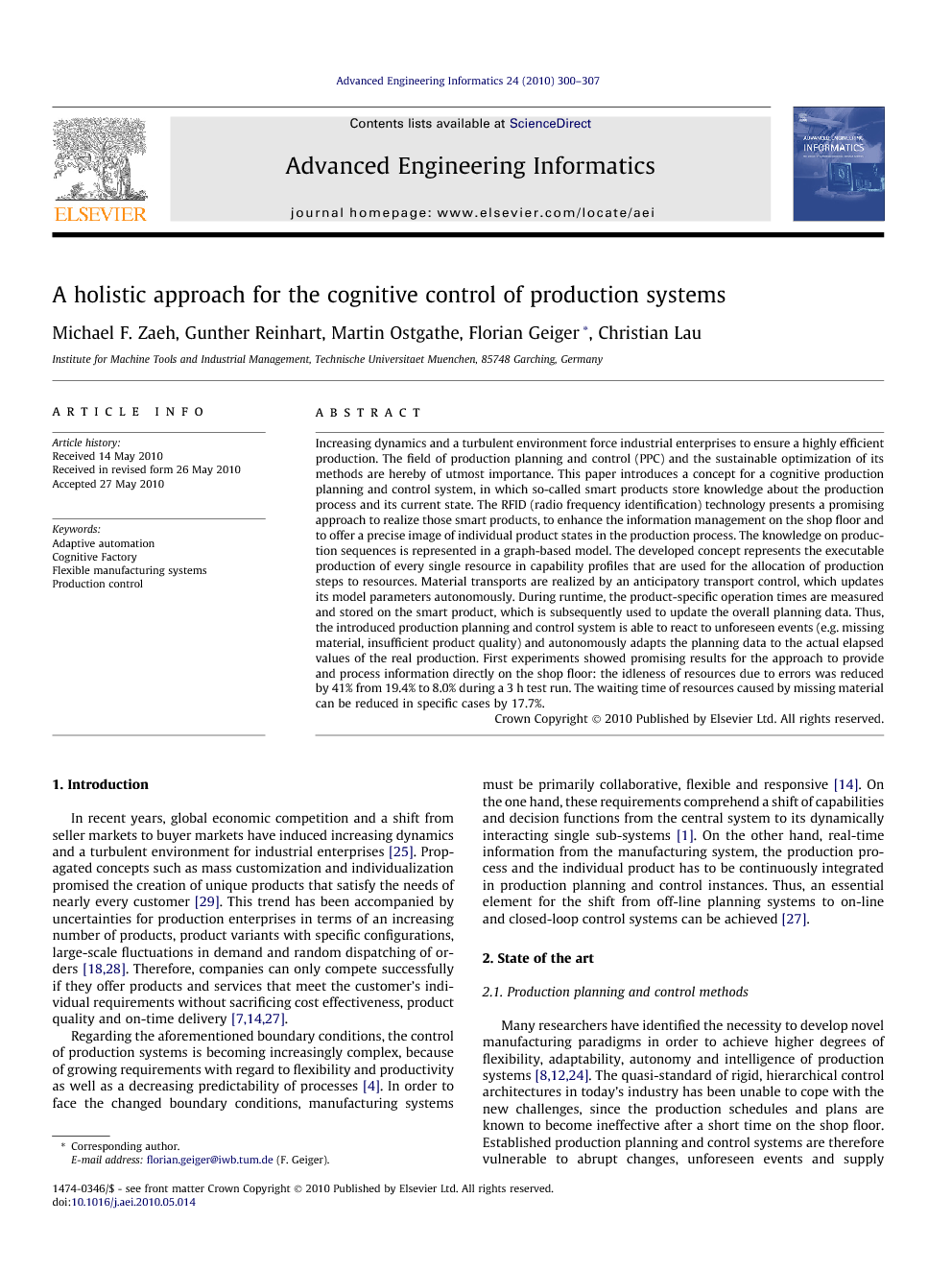ترجمه فارسی عنوان مقاله
رویکرد جامع برای کنترل شناختی از سیستم های تولید
عنوان انگلیسی
A holistic approach for the cognitive control of production systems
| کد مقاله | سال انتشار | تعداد صفحات مقاله انگلیسی |
|---|---|---|
| 16193 | 2010 | 8 صفحه PDF |
منبع

Publisher : Elsevier - Science Direct (الزویر - ساینس دایرکت)
Journal : Advanced Engineering Informatics, Volume 24, Issue 3, August 2010, Pages 300–307
ترجمه کلمات کلیدی
اتوماسیون تطبیقی - کارخانه شناختی - سیستم های تولید انعطاف پذیر - کنترل تولید
کلمات کلیدی انگلیسی
Adaptive automation,Cognitive Factory,Flexible manufacturing systems,Production control

